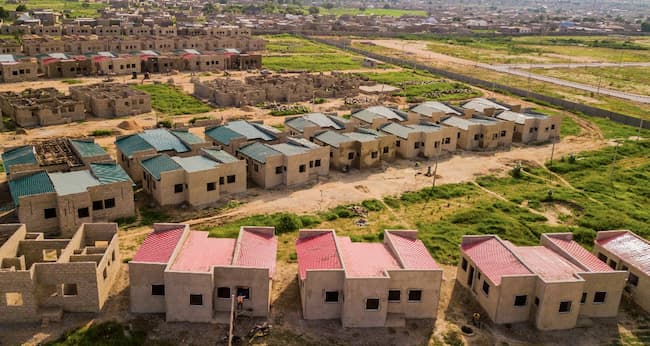The Federal Government has unveiled plans to address the housing needs of vulnerable populations through its Renewed Hope Shelter Programme, with the goal of delivering one million low-cost housing units within a seven-year timeframe.
Mrs. Chidimma Makuachukwu, the National Programme Manager for Renewed Hope Shelter for the Poor, IDP, and Refugees, shared this information on Tuesday during the Sixth Nigeria Affordable Housing Finance and Innovation Summit (NAHFIS Expo 2023) held in Abuja.
The Renewed Hope Shelter Programme operates under the auspices of the Federal Ministry of Humanitarian Affairs and Poverty Alleviation. Makuachukwu emphasized the collaborative efforts between the federal, state, and local governments to secure land for constructing these affordable housing units for vulnerable groups.
The program’s focus is on facilitating the relocation of internally displaced persons (IDPs) back to their ancestral homes, with the project initially launched in Benue State. Makuachukwu revealed that 10 hectares of land have been allocated to the Federal Government for the project in Benue, and plans are underway to extend the initiative to other states by 2024.
The National Programme Manager stressed the importance of utilizing local labor and content to empower the economies of the local authorities involved in the project. The initiative aligns with the agenda of President Bola Tinubu to empower communities in need by involving them in building houses for themselves.
Makuachukwu explained, “There is no selection process in this; it is about the vulnerable states across the Federation. If you look at Benue and what is happening there and other northern regions, including the Southern states, you will be marveled; we are going everywhere by 2024. The idea is to move for need assessment, check what is happening so that we come back with need intervention and address the need.”
The Renewed Hope Shelter Programme invites philanthropists, including international donors and embassies, to partner with the project. While the Federal Government will provide the basic funds for the initiative, collaboration with external stakeholders is encouraged.
Ambassador Boladei Igali, Chairman of the occasion and Pro Chancellor of the Federal University of Technology Akure, emphasized the necessity of collaboration between states and the Federal government to achieve the desired results. He cited successful practices in the United Kingdom and South Africa where Federal Government subventions were used to build municipal housing for low-income earners at affordable prices.
Igali underscored the importance of close collaboration with sub-national entities, highlighting their crucial role in facilitating financial instruments and enabling citizens to pay for houses over an extended period, a practice observed in many countries to make housing accessible to a broader population. He urged all Nigerians to support and engage in this commitment for the success of the housing initiative.













